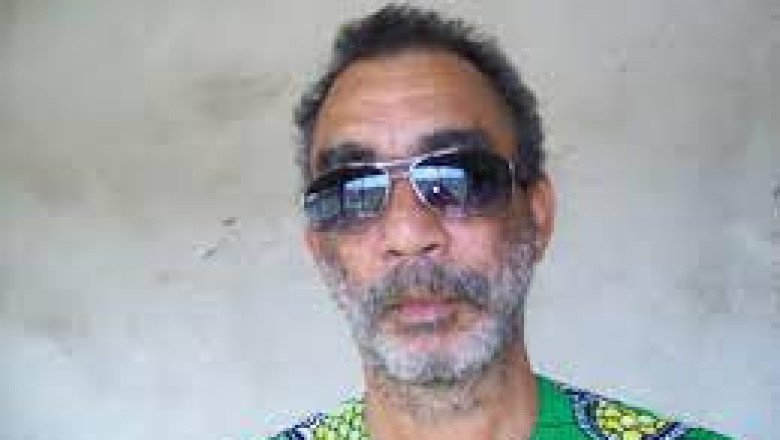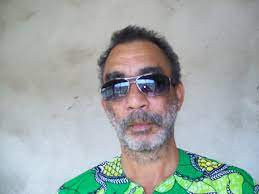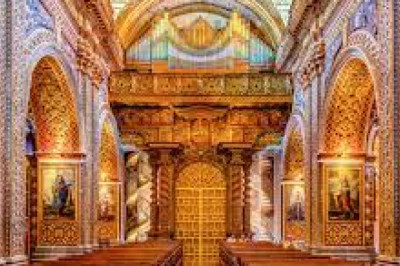views

Tony Ademiluyi caught up with him where he bared his mind on a plethora of issues ranging from his choice of writing as a profession, his famous clash with leading Nigerian literary figures, political happenings in Nigeria, and the state of publishing in his beloved country.

Buzz Times: You were born in London of mixed parentage – a Yoruba father and British mother but spent your formative years in Nigeria. Will you say you had an identity crisis as a writer given that your medical doctor father never spoke a word of Yoruba to you and you ate akara for the first time at St. Gregory’s College, Obalende? Also, like Malcolm X, you dropped your English name – Anthony - for Adewale. Would you say there was a crisis of identity given your upbringing?
Adewale Maja-Pearce: It took me a while to understand myself in the world as a result of the tensions in my dual inheritance, complicated by the fact that one was the colonizer, the other the colonized, which played out in what was then still a British colony by the fact that I wasn’t admitted into my father’s language – by my father. So, yes, complicated, which gave me much angst growing into adulthood and trying to grapple with a world of binaries, which still persists. But, over time, as I began to explore my condition and the challenges it presented, I began to see it as a source of strength because I was forced to individuate, to become as true to myself as I could be, which is the challenge we all face. You could say it was a gift, for a writer especially. I couldn’t hide behind no masks.
Buzz Times: You studied history at the University of Swansea in Wales, which was a popular academic route for most journalists. Why did you choose the bohemian - and financially precarious - path of a writing career rather than the more secure route of journalism?
Adewale Maja-Pearce: You have to be true to whatever gift you feel you have been given. Actually, my initial thought was to become an academic historian but by my final year I just couldn’t see that as a path for me. It wasn’t helped by reading Light in August and Crime and Punishment over a fateful weekend. The die was cast.
Buzz Times: You finished your first degree in Swansea in 1975 and dropped out of a postgraduate degree program in Canada shortly after your education in the UK. As a then-budding Afrocentric writer, why didn’t you immediately return home to contribute your quota to nation-building since the economy was roaring as the then Military Head of State, General Yakubu Gowon, famously said at the time: ‘Our problem is not money but how to spend it.’
Adewale Maja-Pearce: It was never on the cards. My father was then still alive but I wasn’t welcome in his home, sad to say, which was why I had fled back to the UK to join my mother when I was 16 following my school cert, as it was at the time. And, as you suggest, what, really, did I know about Nigeria following my cosseted childhood? But then my father died and I had the opportunity to return and write a book, which was published as In My Father’s Country. The central question that motivated it was: Am I Nigerian and, if so, in what sense? As for being an ‘Afrocentric writer’, I wouldn’t know what that meant. I am just a writer, period.
Buzz Times: You were a consultant to the defunct African Writers Series between 1986 and 1994 with Vicky Unwin as the then publisher. In that capacity, you were responsible for selecting the titles to be published under the African imprint. In your retrospective opinion, what was responsible for the collapse of the series? Was it ever profitable before the structural adjustment program years?
Adewale Maja-Pearce: It was just about profitable, courtesy of Things Fall Apart, but its time was always limited. It was too much of a ghetto that served its purpose. Besides, Heinemann Educational Books, as its name indicates, was geared around textbooks for schools, not literature, which was an anomaly that constituted less than one percent of the company’s profits. Its real value was to open doors to education ministers in the continent who had read said Things Fall Apart, which helped seal the contract for, say, 100,000 chemistry textbooks for Zambian secondary schools. Then again, African writers, insofar as they desired to be published in Abroad (i.e. London and America, as we say), naturally wanted to go mainstream so they could be entered for, say, the Booker Prize. For the rest, publish locally for a local audience, as indeed we are increasingly doing.
Buzz Times: At the moment, the most successful indigenous publishing house is Farafina owned by a former banker, Mukhtar Bakare. How can money bags be attracted to the publishing industry in Nigeria? Once upon a time, comedians in Nigeria were poor until Atunyota Akpobome, a.k.a Ali Baba, changed the narrative, which led to the emergence of billionaire comedians in the country. Can the same happen to writers in Nigeria?
Adewale Maja-Pearce: Writing in English is far too removed from the mass of the people already struggling to put food on the table. The only money – potentially – is in textbooks (see above) but only if we know what we want to teach our children, which is doubtful but let’s not there. Nigeria’s problems are many!
Buzz Times: You run The New Gong Publishing. What is your experience as a digital publisher?
Adewale Maja-Pearce: New Gong offers a platform for anyone to publish their book on Amazon. We are not a regular publisher; we only facilitate, and we charge for editing, typesetting and uploading your book. We invariably advise those who approach us to go to a mainstream publisher – Farafina, say, or Narrative Landscapes. Or just do it yourself.
Buzz Times: You were the Africa Editor of the human rights publication Index on Censorship between 1986 and 1997. Please share your experience with us especially that of the democratization process which characterized your tenure. Also, is Western-style democracy the best form of government for Africa given that communist China is an economic wonder despite its autocratic form of government?
Adewale Maja-Pearce: It was an interesting time to work for Index on Censorship because, with the fall of the Berlin Wall, the ‘West’ upped its desire to universalize democracy, freedom of the press, human rights etc and Africa was the soft underbelly. At the time, the continent consisted of one-party states, whether in or out of uniform. They were successful but then it was they who had enabled those same regimes for their own economic interests to begin with. The story had changed and we were made to change with it, which is the African condition, alas. As for ‘democracy’, why is it somehow a ‘Western’ preserve? All people everywhere should enjoy representative government as a basic right. Then again, I think people are starry-eyed about China. Yes, they have come a long way but all may not be what it seems precisely because the media are not free to write the truth. India is a better model and will surpass China economically in the near future precisely because it is an open society, ready to take criticism for the failings it doesn’t hide. Speaking for myself, I don’t like anyone telling me what to think, read, say, write or do as long as I don’t disturb the next person. I believe in freedom.
Buzz Times: The June 12 crisis was raging globally at the time of your stay at the Index on Censorship. Looking back now, how could the late Chief M.K.O Abiola have better handled the quest to reclaim his mandate?
Adewale Maja-Pearce: He couldn’t. He was too interwoven with the existing power structure, which was precisely why he made a hash of it. Pity those who placed their faith in him, which is itself part of ‘the trouble with Nigeria’.
Buzz Times: You clashed with the late Professor John Pepper Clark after he hired you to write a book about him. He took you to court afterward. Has the litigation against you been discontinued because of his demise?
Adewale Maja-Pearce: Yes, thankfully, given that he can’t litigate from the other side.
Buzz Times: You also had a public falling out with Nobel Laureate Prof. Wole Soyinka where you stated your side of the story after he called you names. Having joined the septuagenarian club in June, is there any hope of you both reconciling before any of you cross over permanently to the other side since you are both on the departure lounge having attained the Biblical three score and ten?
Adewale Maja-Pearce: Thanks for reminding me about my impending meeting with my maker (to say nothing of the above-mention JP)! Concerning our esteemed Prof, he is on his own. For my part, I no know book.
Buzz Times: The late Afrobeat Maestro, Fela Anikulapo-Kuti sang against colonial mentality that has plagued many post-colonial African states. Coming to your constituency – writing - why is it that it is only when African writers win major prizes that they are really celebrated?
Adewale Maja-Pearce: Because London and America rule OK. But put it this way, would you rather publish with Penguin in London and America, or Farafina in Lagos?
Buzz Times: Why are editors who play a major role in the book publishing process largely go unrecognized with only the writer enjoying the celebrity status?
Adewale Maja-Pearce: I believe this is a recognised problem that is being addressed. There is at least one major ‘international’ prize which shares the money 50-50.
Buzz Times: What is your view on the students’ loan act signed into law by President Bola Ahmed Tinubu?
Adewale Maja-Pearce: A 419 as far as I can make out but that shouldn’t surprise anybody given the antecedents of the man proposing it.
Buzz Times: Nigeria currently has a debt profile of over 81 trillion naira with the government at some point servicing the debt with about 96% of the revenue. Do you agree that former finance minister, Dr Ngozi Okonjo-Iweala, helped Nigeria get debt relief when journalist and trade unionist, Owei Lakemfa, pointed out that a whopping $12 billion was handed on a platter to the London and Paris clubs.
Adewale Maja-Pearce: Obviously she was a stooge, having been seconded from the World Bank, who even wanted to continue paying her dollar salary in contravention of Nigerian law, and to which she returned when she had completed her work. We are slaves to London and Paris because we choose to be so, else why do our elites currently spend US$30mn annually educating their children in British boarding schools, having already spent US$400mn (and rising) on selected properties in Dubai, the current fashionable destination where one of our lawmakers-turned-chief of staff recently celebrated Mama’s birthday. The truth is we think so little of ourselves. Others will take advantage and who can blame them? The fault is ours. We need to start taking responsibility for where we are and where we need to be. It’s as simple – or as complicated – as that.
Buzz Times: How best can President Bola Tinubu revive the ailing economy, create jobs, attract foreign direct investment asides portfolio investments and stimulate the real sector which is the greatest employer of labour?
Adewale Maja-Pearce: He can’t, being part of the problem. Nigeria needs radical surgery, beginning with how this most complex of countries governs itself. There is nothing organic about Nigeria and this top-down structure in which all power is vested in the federal government is antithetical to our progress. It’s designed for looting and nothing else, which is how the ‘colonial master’ fashioned it. We have been their faithful lapdogs ever since.
Buzz Times: Which of your books do you think will outlive you? And how do you hope to be remembered when the inevitable finally happens?
Adewale Maja-Pearce: My demise, again! I have no idea and what does it matter anyway?
Buzz Times: Thank you very much for your time; we wish you more years as a senior citizen in good health and peace of mind.
Adewale Maja-Pearce: Welcome.












Comments
0 comment